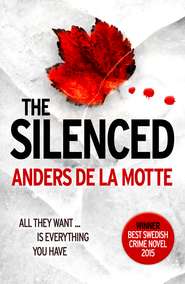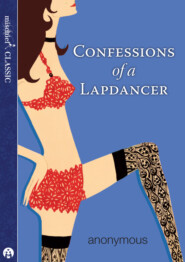По всем вопросам обращайтесь на: info@litportal.ru
(©) 2003-2025.
✖
Empire Girls
Настройки чтения
Размер шрифта
Высота строк
Поля
“My condolences, Miss Adams,” he said, dipping his head.
“You said that already.” I liked that both men looked away, my sharp words making them uncomfortable. An anger had flared inside me, hot and destructive, burning away the last of my courtesy. I glared at them.
The undertaker excused himself and escaped into the car. Mr. Lawrence and I leaned back against the sedan, watching Rose as she bent to place the flowers on my father’s casket.
“So what it is?” I asked. “Is it money? Gambling?” I paused, my heart lifting ever so slightly. “Did he sell a book?”
“It concerns your father’s estate,” Mr. Lawrence said, staring at the damp ground. “I’d like to speak with you and Rose privately. We could go to my office, or I could accompany you home.”
“From the look on your face, it ain’t good news. Why not spit it out right here?”
“Your sister should be with you. Your father expressed concern that you two aren’t very...close.” He stepped in front of me, blocking my view of Rose as she began to tidy up mother’s grave. “Today, it’s necessary to bridge that chasm. I don’t mean to frighten you—”
“You’re doing a pretty good job.”
“But these things are never easy, and your father was an unusual man.”
“He was a good man.”
“I know,” he said. “I didn’t mean to imply otherwise.”
“Just so we’re copacetic.” I felt something on my cheek and swatted at it. It was a tear.
Mr. Lawrence reached into his pocket, pulled out a clean handkerchief and handed it over. “I have a poor memory for quotations, but there are a few that stick with me. I’ve got one I think you might know. Do you want to hear it?”
“I’m going to anyway, right?”
He reddened and cleared his throat. “‘For in that sleep of death, what dreams may come.’”
“Hamlet,” I said quickly. I knew Shakespeare’s plays inside out and upside down.
“It always appealed to me because of its optimism,” Mr. Lawrence explained. “It doesn’t have to be the end, Ivy,” he added gently. “Not entirely. I believe those who’ve passed on still have a stake in our affairs from the other side.”
I nodded, unsure of how to respond to his kindness. The thought did provide some comfort, but it wasn’t until we were riding home, the three of us silent in the shadowy cave of the hearse’s cabin, that I realized he’d misinterpreted Hamlet’s words. The dreams of the dead were not of the living, they were of regret for the sins of life, the unfinished deeds, the mistakes that could never be fixed.
* * *
We convened in father’s study. The afternoon had grown chilly, and Rose started a fire and fixed some tea. I should have helped her, but once I’d settled into father’s comfortable leather chair, I didn’t want to move. I could still smell the last cigar he smoked.
Mr. Lawrence drained his teacup and placed it on the mantel. He refused our offers to sit and began to pace, file folder in hand. “Your father lived a colorful life before marrying your mother. I suppose I should start there.”
Though I didn’t like the idea of father telling Mr. Lawrence his secrets, the care with which he chose his words bothered me more—he knew what was to come next would be distressing. I glanced over at Rose. Her pale face and wide, fearful eyes meant she’d come to the same conclusion.
“Go on,” I urged.
Mr. Lawrence stopped moving, took a breath and looked at me directly. “Your mother was your father’s second wife. His first marriage produced a son, and your father has left the management of his estate to this man.”
“That can’t be true,” Rose said after his words sank in. Her voice sounded weak and faraway.
“I don’t understand,” I added. “Why would he have kept something like this hidden?”
Mr. Lawrence placed the folder on my lap. “I’m not certain. I’ve only just learned of it. Perhaps you should read this, and then we’ll proceed.”
Rose got up and sat next to me, and I placed the document between us. I read through it a few times, but the repetition wasn’t necessary—for something that would change our lives so irrevocably, it was remarkably straightforward.
In his beautiful handwriting, all measured slopes and perfect loops, our father had clearly communicated his wishes. He’d left the management of his estate to this man, a son he’d sired six years before marrying our mother. Asher John Adams. It was an untouchable name, mysterious with a dash of history, and so naturally one my father would choose. To my surprise I felt a stab of affection for this lost half brother, the unending possibility of him stretching my imagination. I pictured him dark and mysterious, with a certain Valentino exoticism. I’d studied the great actor in the theaters of downtown Albany, memorizing the way he crushed his eyebrows and widened his eyes at the same time, the magnificent strength as he folded his arms, muscles rippling. My brother would look like that.
Asher. Was he a gift from the grave? “When can we meet him?”
Rose gasped. “Ivy, please take this seriously. This is our house. Ours. Father’s mind must have been compromised.” She sat forward, appealing to Mr. Lawrence. “Can you provide proof? How do we know some swindler didn’t concoct this scheme? Where is this first wife? How do we know this man is father’s son?”
“If you’ll sift through the file, you’ll find the necessary documents,” Mr. Lawrence said. “I looked them over closely this morning. I think they’ll settle any question of legitimacy.” He touched the open file with his finger. “Please remember that seeing things in black and white can be a shock,” he added, his voice a touch softer. I knew he wasn’t warning me. It was Rose who’d gone still.
I began sifting through the memos from the bank, threatening letters from the state assessor’s office and countless hastily scribbled notes in my father’s handwriting. Asher’s name appeared periodically, with no other information than his birth date. April 29. Mine was May 1. Had father thought about him when I came into the world? He must have. I felt a constricting of my chest. Was it a pang of loss or anger or sadness? I shook it off.
“And Asher’s mother?” I asked as I continued rummaging through the paperwork. “What of her?”
“Deceased,” Mr. Lawrence said, frowning. “There are no other known relatives.”
I’d almost exhausted the file when I spotted our brother. As large as a letter, it took a minute to register as a photograph. “It’s him, Rose.”
The photograph had been enlarged and cropped, and I stared into his extraordinarily light eyes. They were Rose’s eyes. In fact, he was the male embodiment of Rose— aquiline nose, lean frame, full mouth. He was in shirtsleeves, arms crossed, the thickness of his forearms hinting at manual labor. The half smile cocking his mouth was a brash challenge hidden under a thin layer of civility. A metal plate lay tucked behind his left shoulder. It was stamped with two words: EMPIRE HOUSE.
“He could be your twin,” I said, trying not to sound as disappointed as I felt. I’d sat across from Rose at thousands of family meals. Though good-looking, Asher’s features were as exotic as a jar of strawberry jam. I thought at the very least he’d look like an outsider, different, like me. “He is definitely an Adams,” I admitted. “No one can deny it.”
“He’s still a stranger,” Rose said in a choked voice. “If he wasn’t, he would be here, wouldn’t he?”
Mr. Lawrence sighed. “There lies the problem. Asher John Adams seems to have vanished from the face of the earth. It appears your father had very little contact with his son over the years, no more than a handful of terse phone calls. When your father wished to finally speak to his son in person, he learned Asher Adams has no known address in New York City or the whole Eastern seaboard, for that matter.”
I didn’t like that. Was Rose right? Had my father been swindled? No. He could be flighty, but he was too intelligent for that, too sharp-minded. “Yet, something in those conversations convinced my father to make Asher manager of his estate,” I said. “He could have given it to Rose or me, or even you.”
“I’m not the eldest anymore,” Rose said. “But I am here, and he isn’t.” Her posture regained its straight line. “Could the problem be solved that easily? If we can’t find him, everything stays as it is?”
Mr. Lawrence looked pained, indecision clouding his hazel eyes. I stared at him, mercilessly, as he waged debate within himself. How he must tip his hand in the courtroom! I began to wonder why father picked this man. Then it hit me, his fee was probably right next door to nothing. I glanced down at the bank notices. “There are further financial complications,” I said evenly. “Could you explain what those are?”
He nodded. “The mortgage and property taxes are in severe arrears. If the heir does not make claim on the house and bring the tax bill to date, the home will be sold and the bank and state will see its money.”
“Did my father leave any funds in his accounts?” Rose asked, though we both knew the answer to that one.
Mr. Lawrence paused. “I’m sorry, but not very much at all.”
My mind reeled, the implications of this development still unclear. “What if Mr. Asher John Adams can’t be found? What happens then?”
“If he doesn’t come forward within a year, the house will revert to the bank,” Mr. Lawrence explained, his tone regaining a professional aloofness. “The bank will pay the property taxes and sell the home as soon as they can get the stake in the ground.”
We were silent a moment as we considered that image.
“What if we could raise the funds?” Rose said, growing desperate. “Could we pay the bank in installments?











